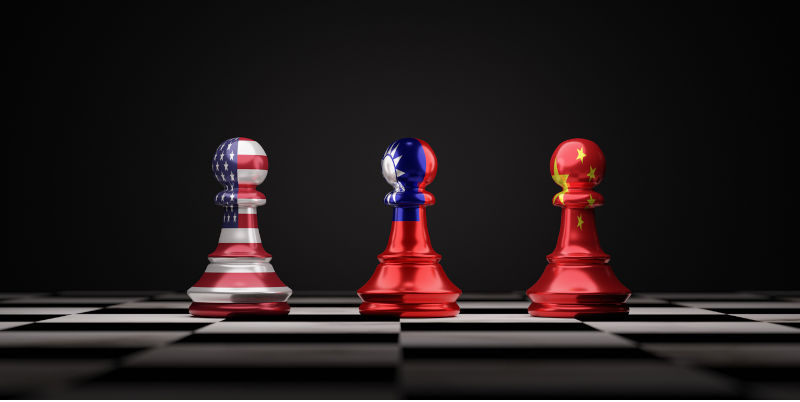US pawns: Taiwanese separatists should stop deluding themselves
June 3, 2024
The island’s current political status is as good as it gets, and any further military partnership with Washington will deliver only diminishing returns.
Say what you like about Taiwan’s new leader William Lai Ching-te, but he really did ask for it. Days after his inauguration, the People’s Liberation Army (PLA) conducted live drills around the island over several days.
It’s not the first time mainland China conducted a full encirclement exercise. After former US House speaker Nancy Pelosi’s pointless visit to Taiwan in 2022 that was nothing but posturing and provocation, the PLA carried out full encirclement drills.
Lai’s incendiary inauguration speech likewise provoked a nasty response from the mainland.
I am not the only one criticising Lai’s speech. Even the Financial Times, which is usually pro-Taipei to a tee, admits it was a bit too provocative. Headlined “China has a point about Taiwan’s leader”, its respected Greater China correspondent wrote that “Lai’s language on sovereignty has already strayed from the path taken by his more cautious predecessor”.
If he made such a declaration on his first official day in office, what is he planning to do for the rest of his term? No wonder he said people should not entertain “delusions” about cross-strait peace.
It takes quite a bit of recklessness for Lai to make his predecessor, Tsai Ing-wen, look “cautious”. He did so by calling the island “a nation” with “sovereignty” at his inauguration.
Lai and others have used similar language, but almost always in less formal occasions, and certainly not at Tsai’s two inaugurations or in high-profile official diplomatic settings.
The PLA drills this time were arguably even more intense and threatening than those in 2022. This is despite it only having targeted five zones around the Taiwanese island as compared to seven. One reason is simply that the zones covered much bigger areas this time.
The PLA and mainland state media have helpfully provided maps of the two different sets of drills for easy comparison.
This time, all the targeted zones were well within Taiwan’s air defence identification zone, a kind of gentlemanly respectful practice that asks foreign aircraft to notify their presence when entering the zone.
Two of the zones in the Taiwan Strait crossed the so-called “median line” deeply towards the island. The median line, which the mainland clearly no longer respects, used to be an informal demarcation for the two sides to avoid provoking each other within the strait.
One large zone covered the north, northwest and west of Taipei, the island’s capital city, as opposed to only the city’s north as was the case last time.
If there is any consolation for Lai, perhaps it was that none of the zones targeted by the PLA this time intruded into Taiwan’s territorial waters while last time, three of them did.
Entering someone’s territorial waters with your military craft could be seen as an act of war, or at the very least an extreme provocation, so Beijing did show some restraint and arguably didn’t want to push Lai so far into a corner that he might be forced to respond.
Beijing has called the PLA drills a “punishment” for Taiwanese separatist forces seeking “independence”. Whatever you call it, it seems the message is loud and clear. Whether in a limited armed conflict fought only across the strait, or a full-blown regional war involving the US, there is no scenario under which Taiwan would come out on top or escape wholesale devastation.
Taiwan’s self-proclaimed protector, the United States, may fancy itself as having dozens of military bases, naval assets and treaty allies that encircle the mainland in the entire north, east and south Pacific. And it regards Taiwan as a key hub in the first of two or even three island chains of encirclement.
In all this, the ultimate goal of the United States – to deter China’s alleged expansionism in the Pacific, at least for a time – may well succeed, but Taiwan here is no more than a pawn.
However, for the mainland and the island, it will be an existential struggle.
Taiwan’s secessionists, if they are realistic, should understand that its current political status with de facto full autonomy is as good as it gets. Any further military and political partnership with the United States serves only Washington’s interests while increasingly threatening Taiwan’s own security, and very existence, by militarising what ought to be a diplomatic relationship rather than an armed stand-off across the Taiwan Strait.
It’s true China’s rich coastal regions may well be devastated by the US in a regional war, but that is not a prospect Taiwan should welcome because it will not fare any better but most likely much worse. The PLA’s repeated drills with encirclement of the island should make that crystal clear. The mainland may not prevail over the US but it can certainly destroy the island.
While the US may want to egg Taiwan on to increase its military capabilities at the expense of its economy, it is a rapidly diminishing return for Taiwan’s security. More and more weapons actually mean less and less security.
Using Taiwan as a provocation works for the US. Washington can portray Beijing as the bully, thus providing further justification for its China encirclement and enforcing the subservience of allies in the region.
It does not work in Taiwan’s favour except for those Taiwanese politicians who are already in cahoots with Washington.
Republished from the South China Morning Post, May 27, 2024


